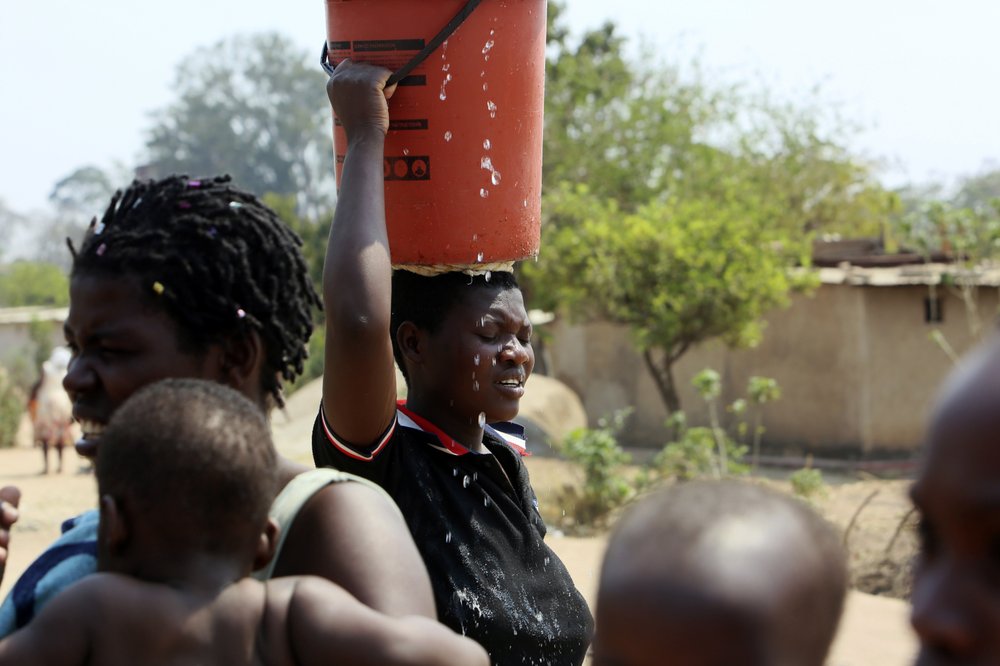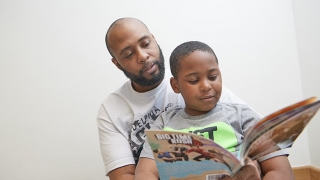A day in the life of a mother of a child with a disability

By Irene Mhlanga
Water is an essential part of life, vital for sustainability and human survival. For Chitungwiza residents taps have run dry for years presenting several health and socio-economic challenges. The hardest hit are people with disabilities and their families.
Rona (not real name) aged 40 is a married mother of two residing in a two roomed domicile in Zengeza, Chitungwiza. Daily, she juggles between taking care of her 10 year old child with Cerebral palsy (CP) and fetching water from a distant borehole. Though the community is faced with the same challenge of water shortage, Rona’s case is unique as her need for water surpasses the needs of others.
In November 2011 Rona gave birth to her first child, a girl and discovered that the child had Cerebral palsy which is disability that affects muscle movement and coordination, in some cases vision, hearing and sensation are also affected. The child uses a wheelchair and needs full-time care for most routine tasks, henceforth being alone for a couple of hours is not an option. The child’s failure to make use of muscle coordination results in constant salivating by the child and the mother has to bath her twice a day and gets her clothes changed twice because of the strong smell of saliva that continuously drips out of her mouth. The amount of water needed in her home is twice more than any other household.
When most people will be enjoying their sleep, Rona wakes up at 4:00am every day to fetch water, leaving her daughter in the care of her husband. She walks 30 minutes to the borehole and has grown accustomed to harassment, often by drunkards from the bottle store where she passes by every time. Despite waking up early she joins a long winding queueand she is number 20 in a slow moving queue while at the same time worrying about her daughter she has left at home. Five hours later she finally gets the chance to fetch water and by that time it is already 9am, her husband has left for work and the child is in the care of her 7year old sibling. Over and above that predicament only 3 buckets of water are allocated per household by the water point committee and she is not an exception to this rule. Her daily routine mirrors that of hundreds of caregivers of persons with disabilities in Chitungwiza and Zimbabwe at large.
Shortage of water jeopardizes her child’s health especially in this COVID-19 era. The child’s clothes have to be washed regularly throughout the day and the 3 buckets are not enough to cater for the water requirements of the family which the water-point committees do not consider when allocating water to residents.
Community awareness on disability issues is vital in order to ensure that there is comprehensive understanding and appreciation of the needs of PWDs and affording family members of persons with disabilities first priority when fetching water. Water point committees need to have persons with disabilities as representative members to ensure the needs of persons with disabilities and their caregiver are catered for.
The Victim Friendly Unit and its role in the access to justice of people with disabilities

By Isaacs Mwale
The Victim Friendly Unit (VFU) was established in 1996 primarily to proactively and reactively police crimes of sexual nature committed against women and children in a manner sensitive to the victim. The Unit accommodates all vulnerable victims, including people with disabilities.
The Unit aims to be supportive of victims and to make the environment conducive, private and friendly. It further aims to be empathetic, meticulous, professional, expeditious, and maintain confidentiality when handling victims of sexual abuse. Protection of victims who have suffered or who are at the risk of suffering serious harm and ensuring that all reasonable efforts are made to safely maintain children in their own homes once abuse or neglect has been discovered or disclosed is one of its aims.[1]
The Unit has also joined hands with other stakeholders such as Justice for Children Trust, Leonard Cheshire, Child Line and UNICEF in the multi-sectoral management of child abuse. In recent times the VFU has endeavoured to improve the access to justice for people with disabilities.
VFU officers from around the Harare and Chitungwiza have begun Disability inclusion trainings, including basic Sign Language training so that they are better capacitated to assist people with disabilities. The work and the role of the VFU in recent times, especially its efforts to be more accommodative to people with disabilities is highly commendable, as the leadership of the VFU, in partnership with the Judicial Service Commission have taken a proactive role to ensure that people with disabilities are afforded access to justice through the various VFU across the country.
Home-schooling for children with disabilities

By Tinotenda Chikunya
COVID-19 has resulted in the closure of several schools across the world and Zimbabwe was not spared. Governments, schools and teachers have come up with several alternative methods for children to continue accessing education during this time yet for children with disabilities the options are limited as some fail to benefit from radio, TV and online lessons.
The situation requires significant efforts from parents, teachers and schools but for parents of children with disabilities, this has been a difficult time as they try to find ways to assist their children in accessing education. Maria Sagambe* is a single mother raising her 15 year old daughter with Down’s syndrome. Since the closure of schools, Maria has not received any support from her daughter’s school or teacher. When she approached them they said they will prepare study packs for her but nothing materialised. She resorted to teaching her child on her own.
Home-schooling has not been easy for Maria as she has had to create a routine for her child and learn to understand her child’s learning needs. Most children with special needs thrive when following a daily routine without change or deviation from the pace of the day and at school there are professionally trained staff to cater for the needs of the children. Material from radio or TV lessons has assisted parents to initiate learning at home but getting the child to concentrate on the Television is nearly impossible without constant attention as children are used to face-to-face interaction and hands-on therapies. The need for concentration on the part of the child has strained Maria’s relationship with her daughter when she tries to convince the child to pay attention.
The child ends up being moody and upset by the constant insistence by the parent to do certain things resulting in parental stress. The unpreparedness of parents to conduct home-schooling has detrimental effect on their child’s education and their family’s well-being.
Remote support is essential in ensuring that education during COVID-19 is inclusive of learners with disabilities. Due to the lack of expertise, parents find home schooling difficult and keeping a consistent routine may not be easily achievable in the home as there are many distractions and requirements for the parent. Like Maria most parents have to worry about putting food on the table as well as teaching their child in the home and the latter is often overlooked. Support from the school and teachers through weekly or monthly provision of study packs and constant check-ins on the parents and child will go a long way in providing quality education for learners with disabilities.
